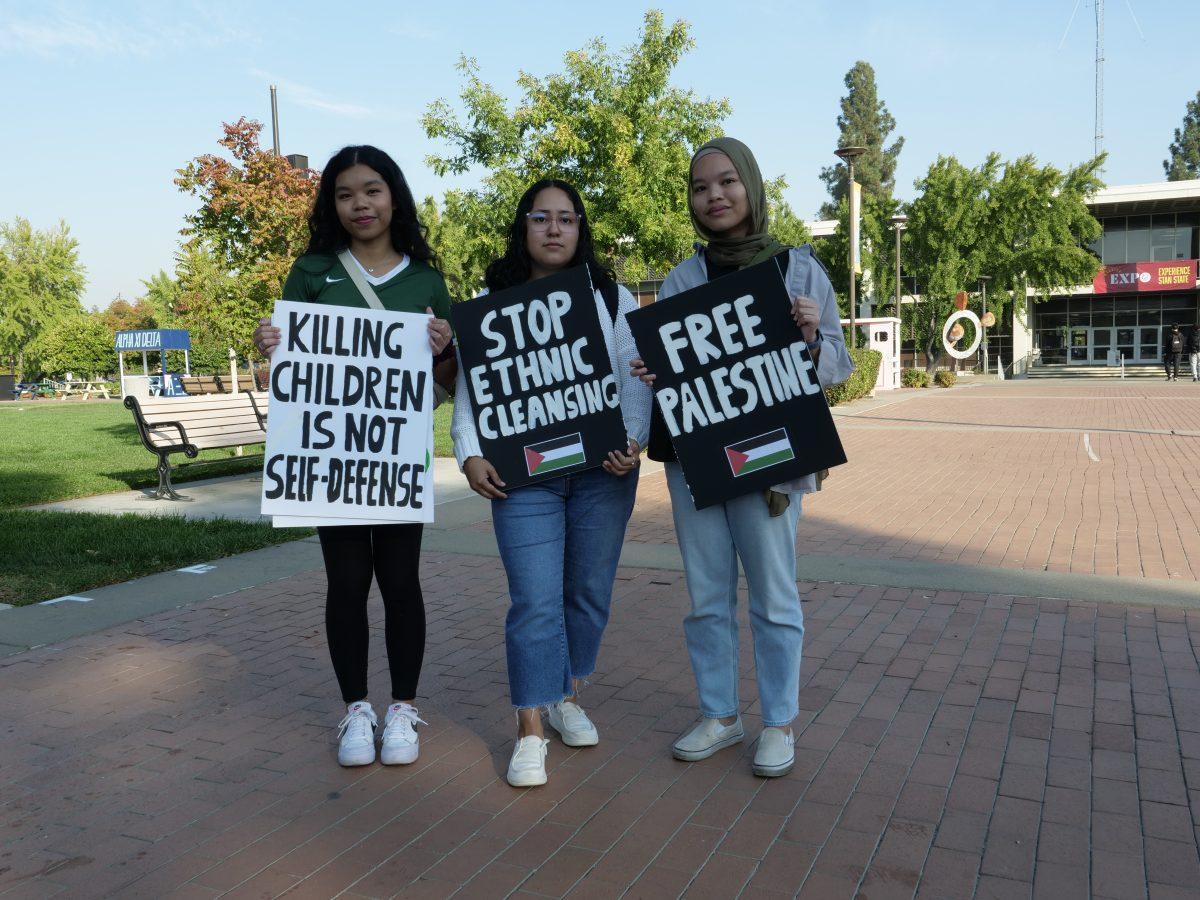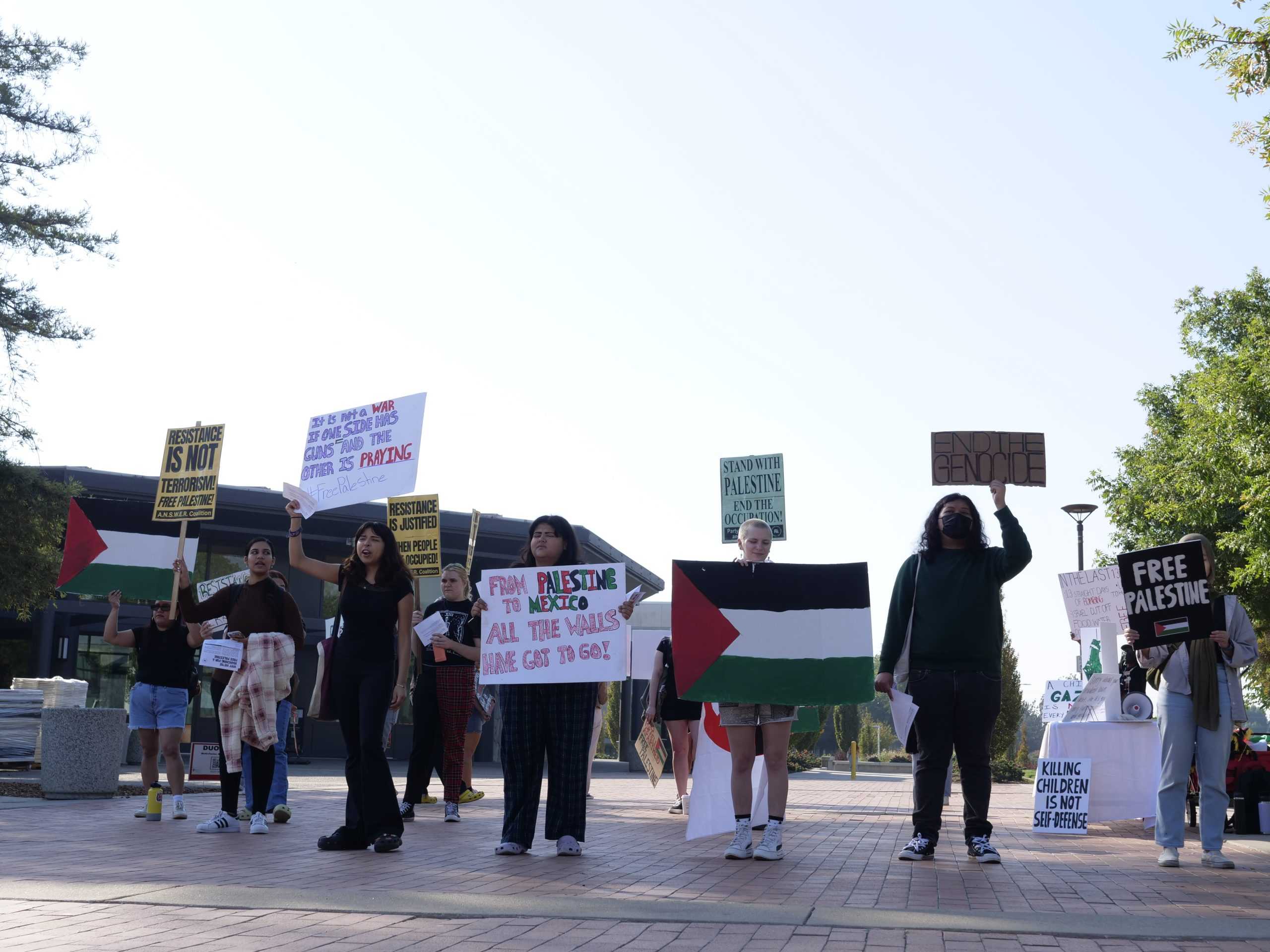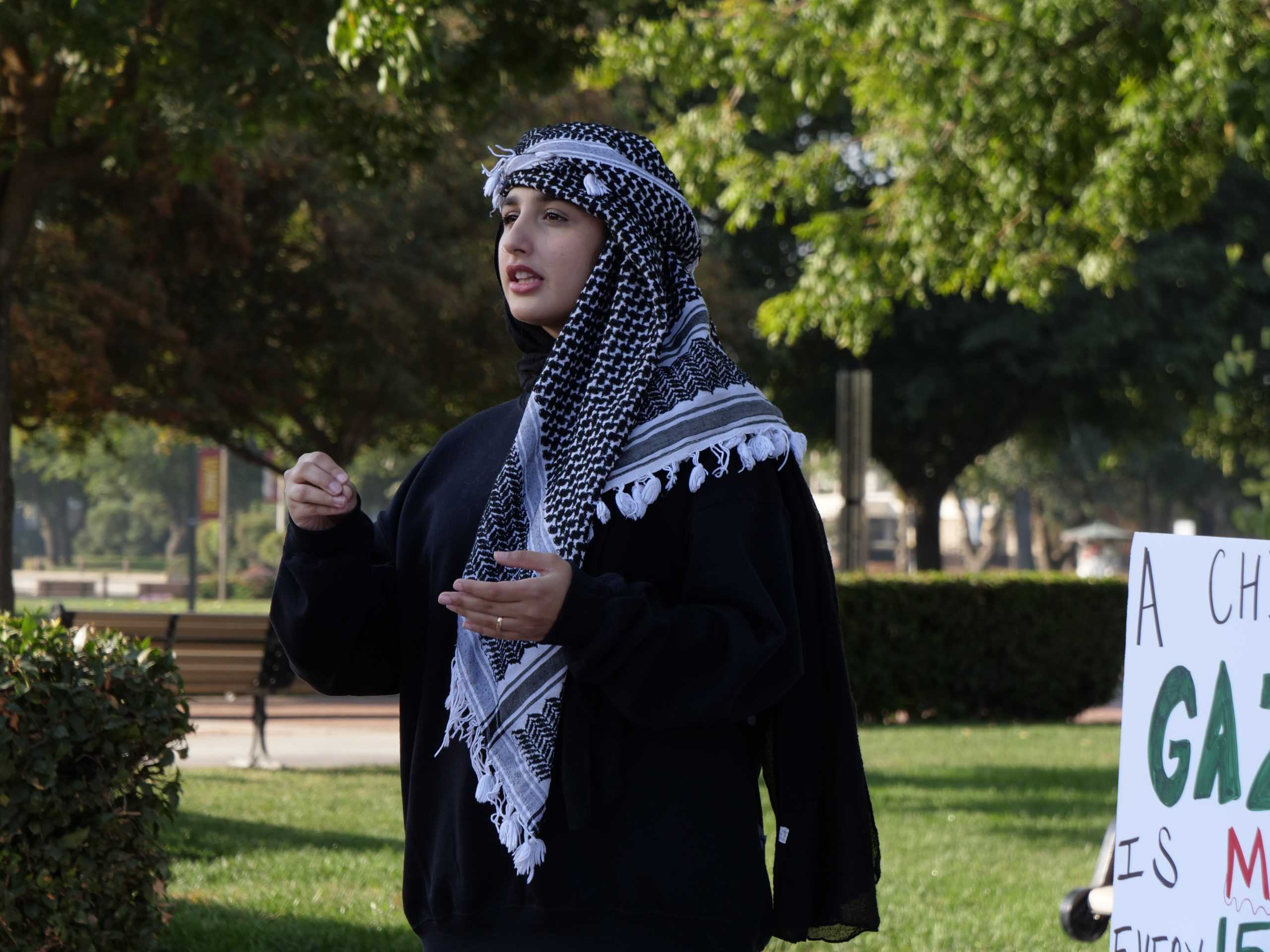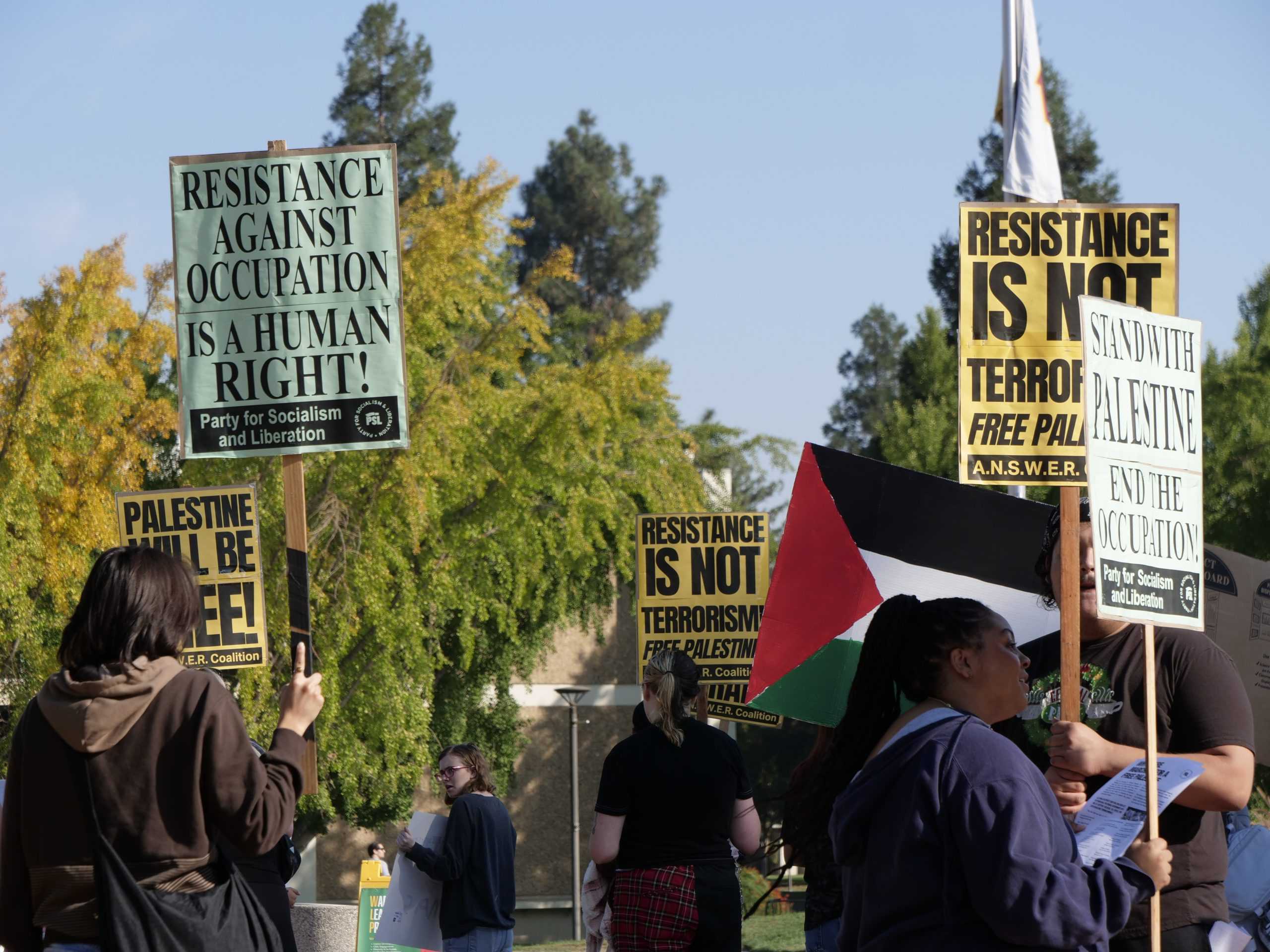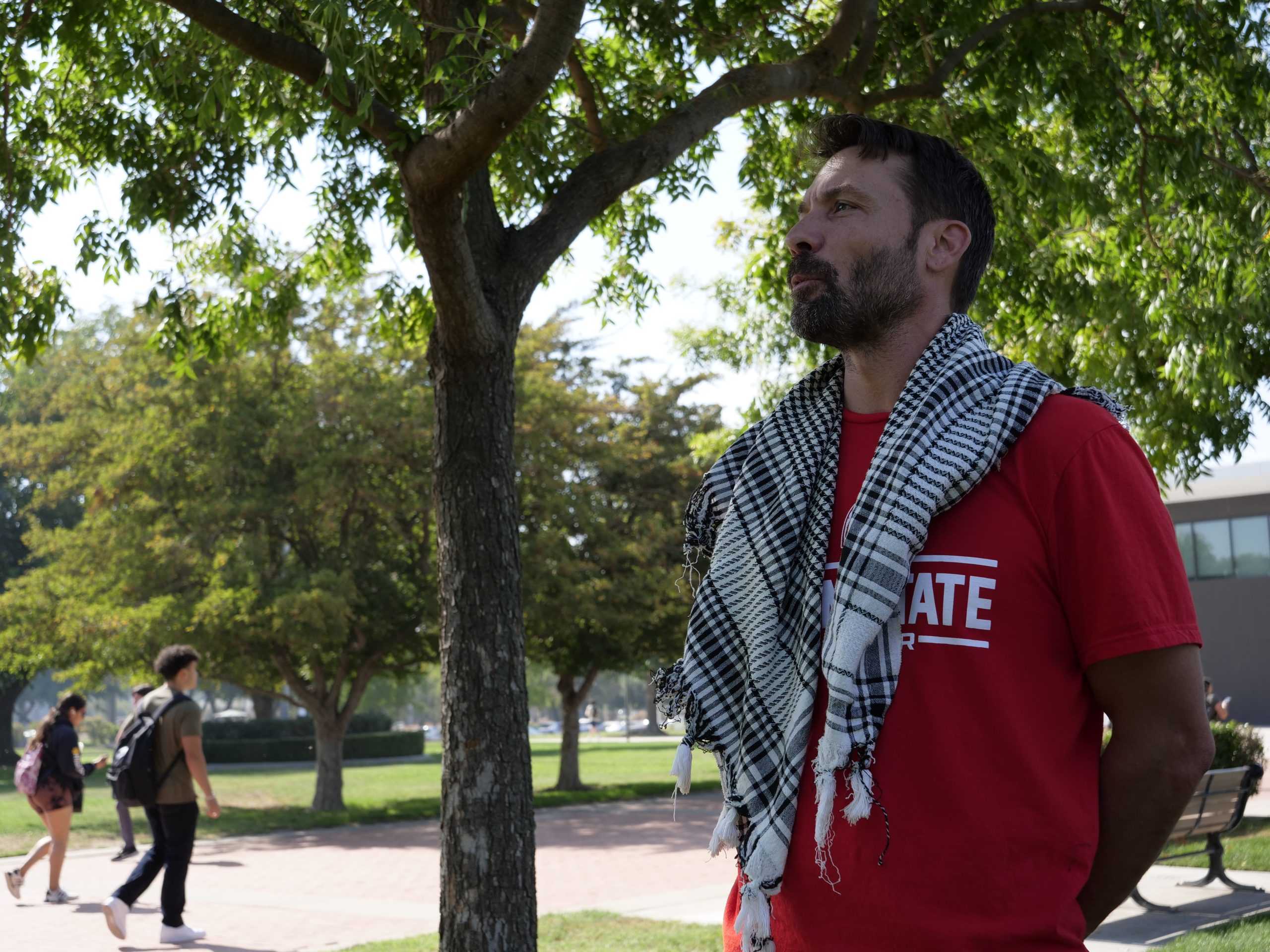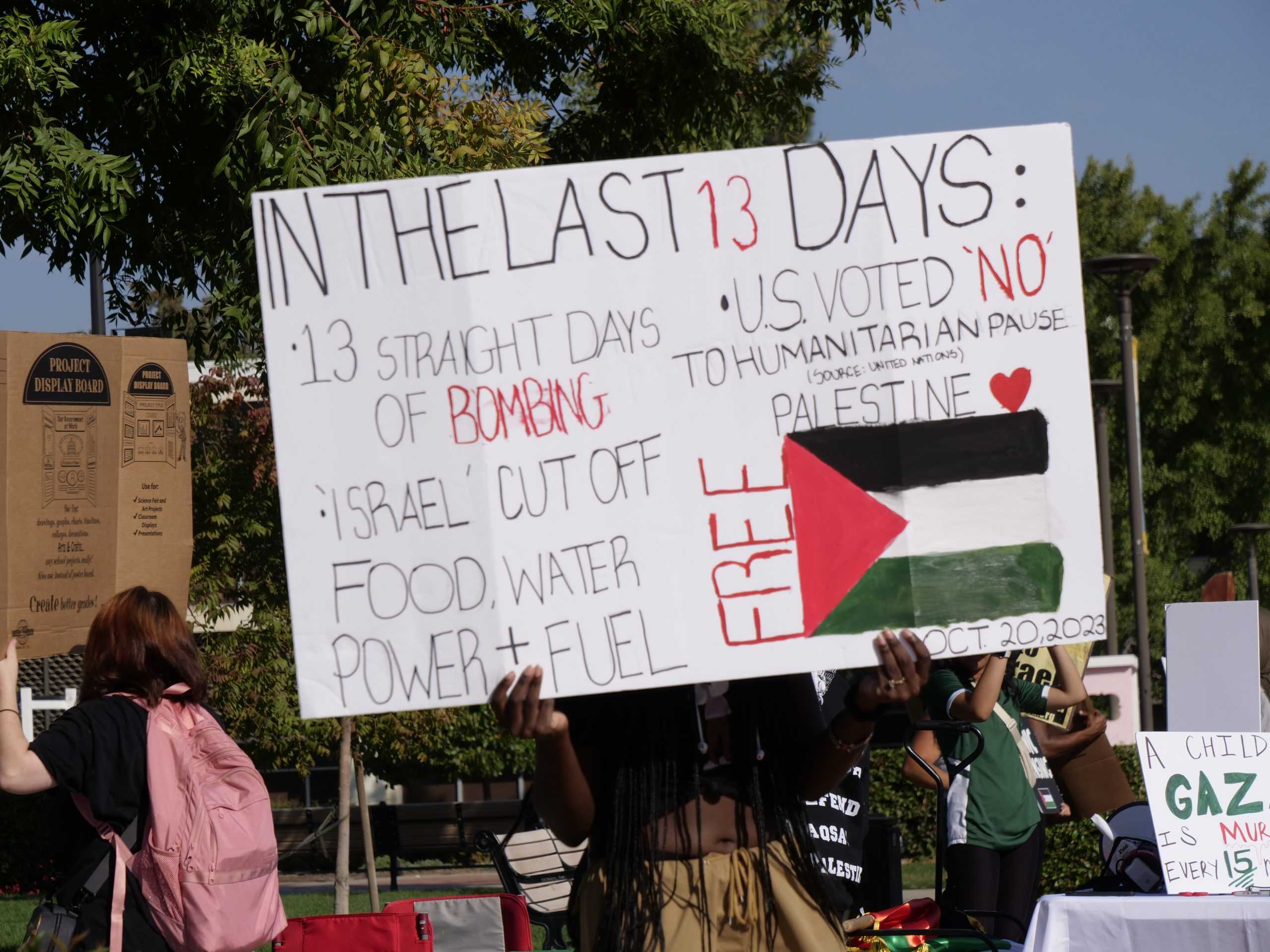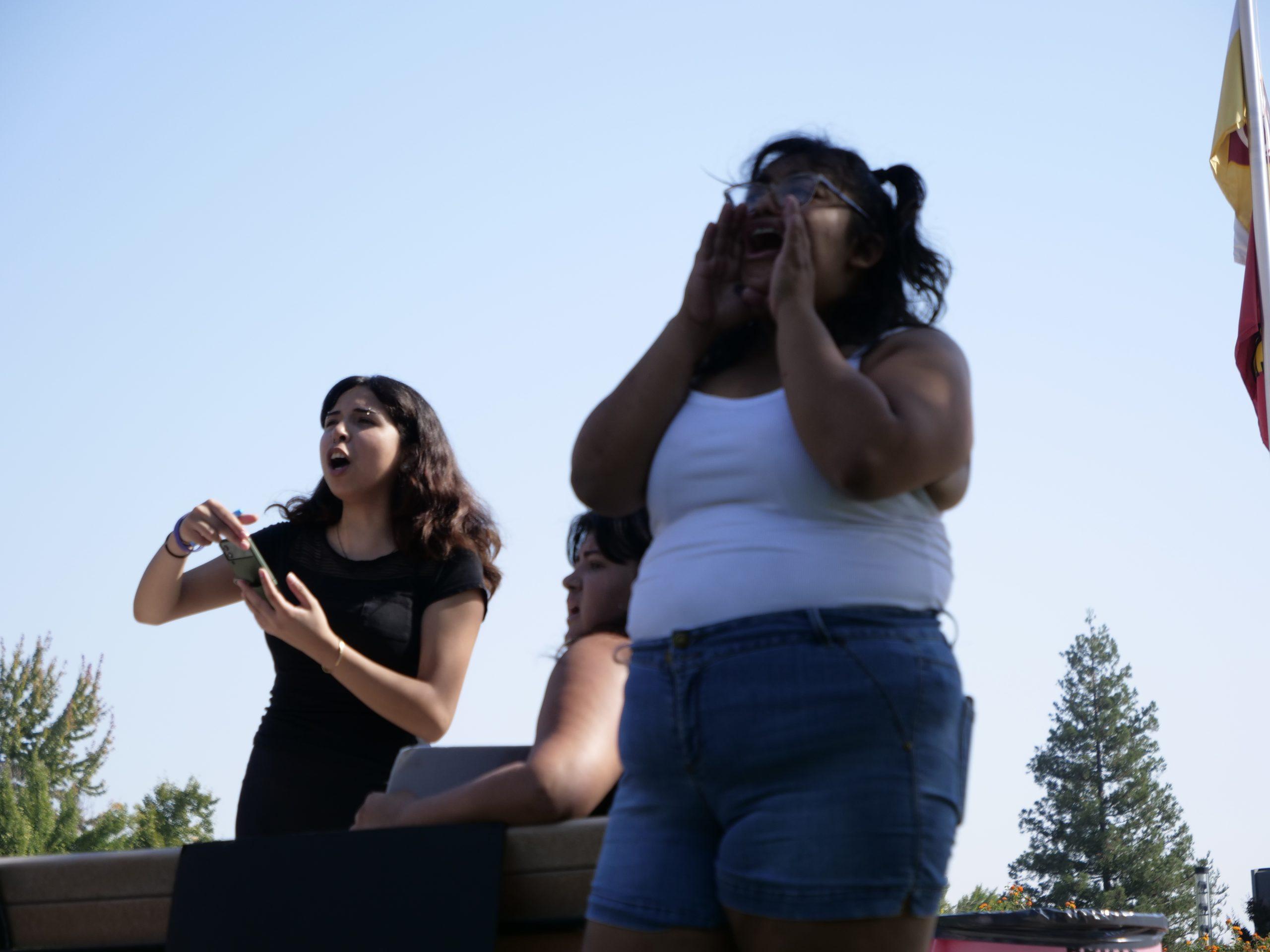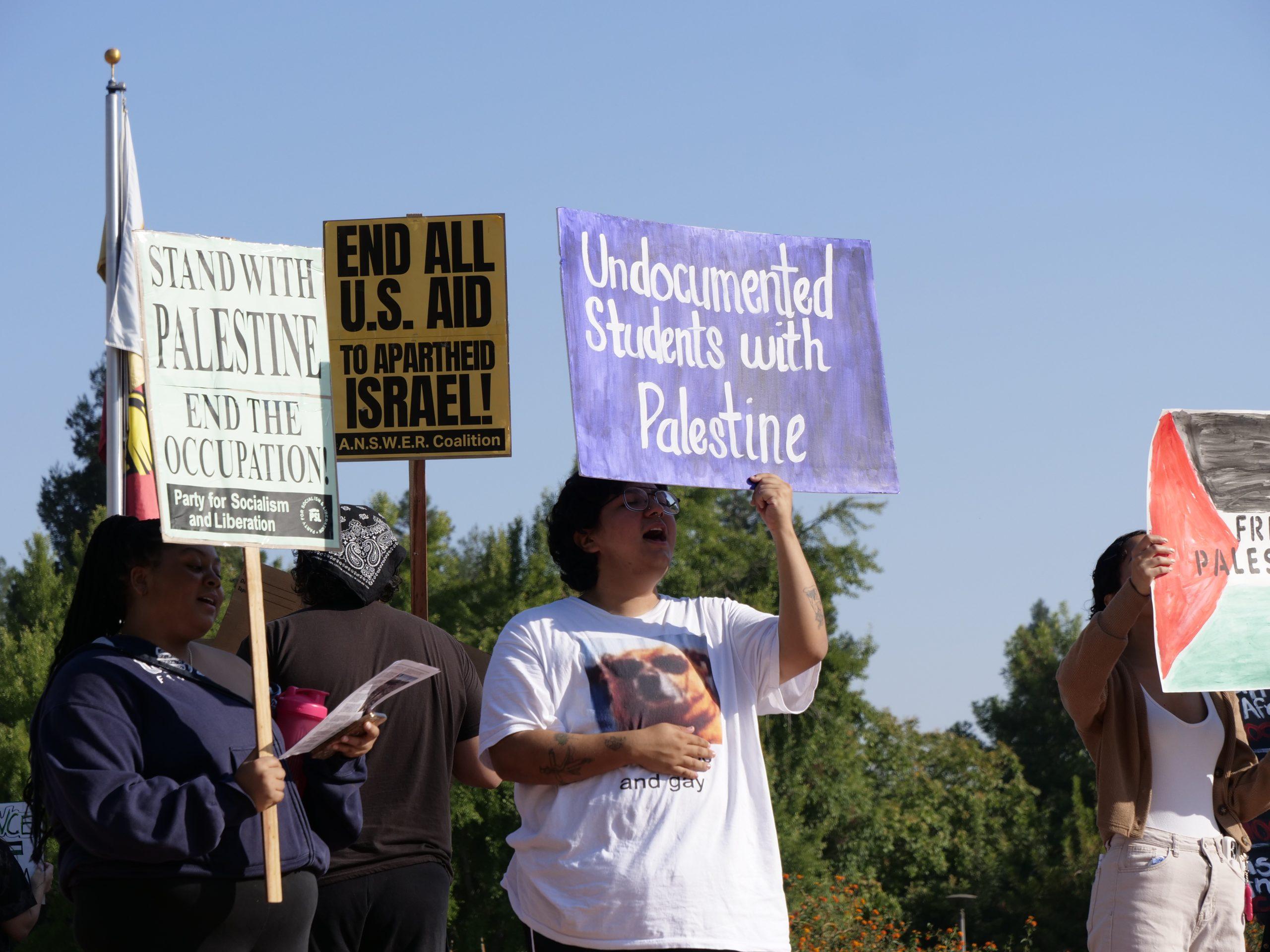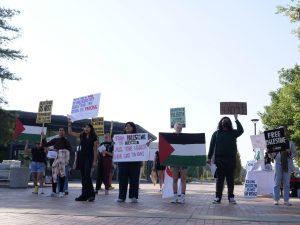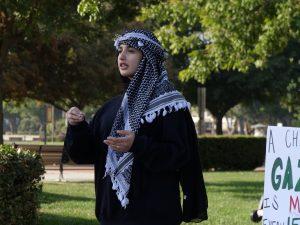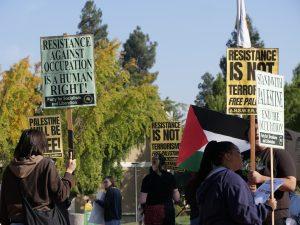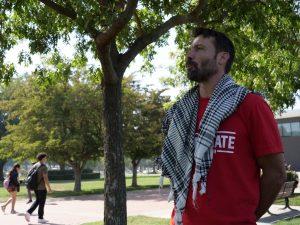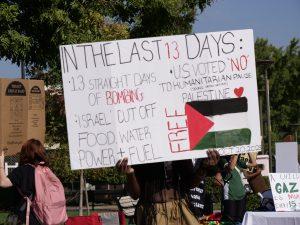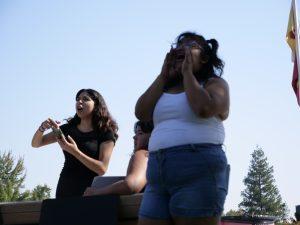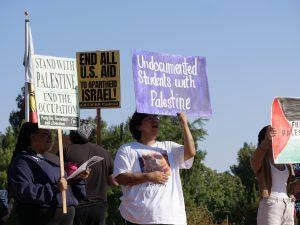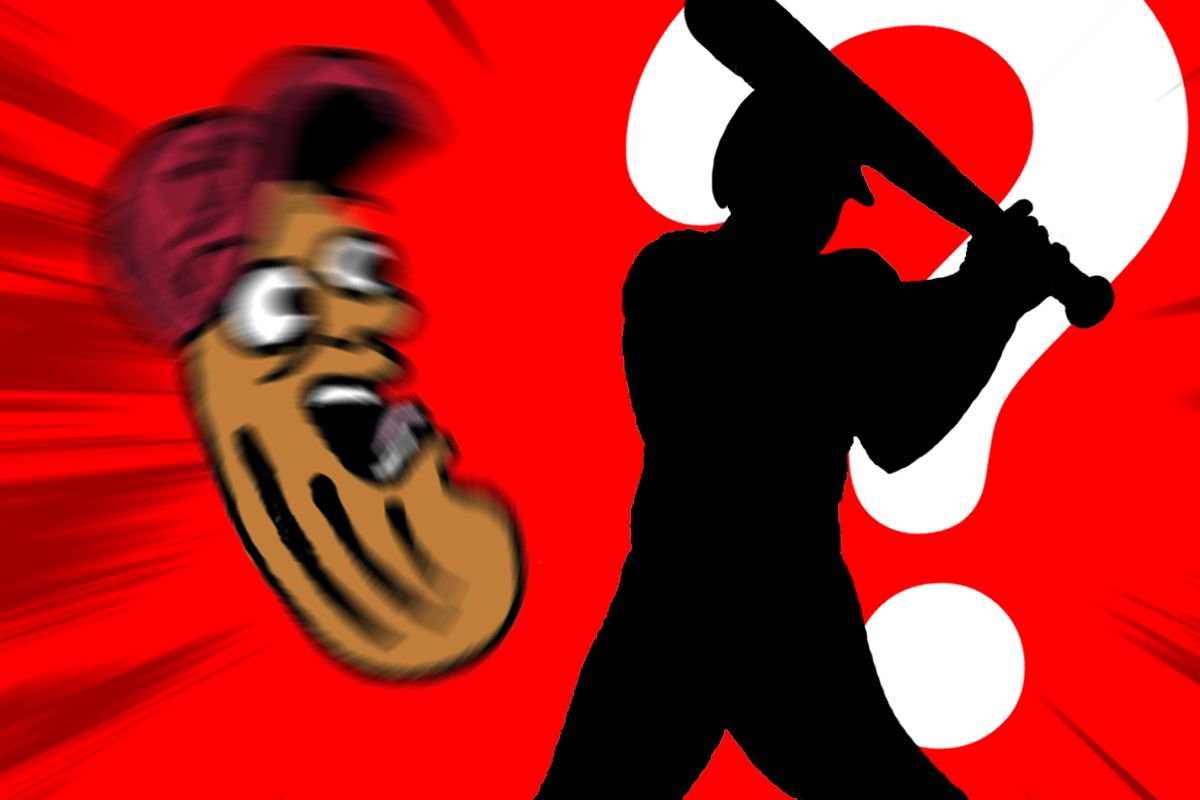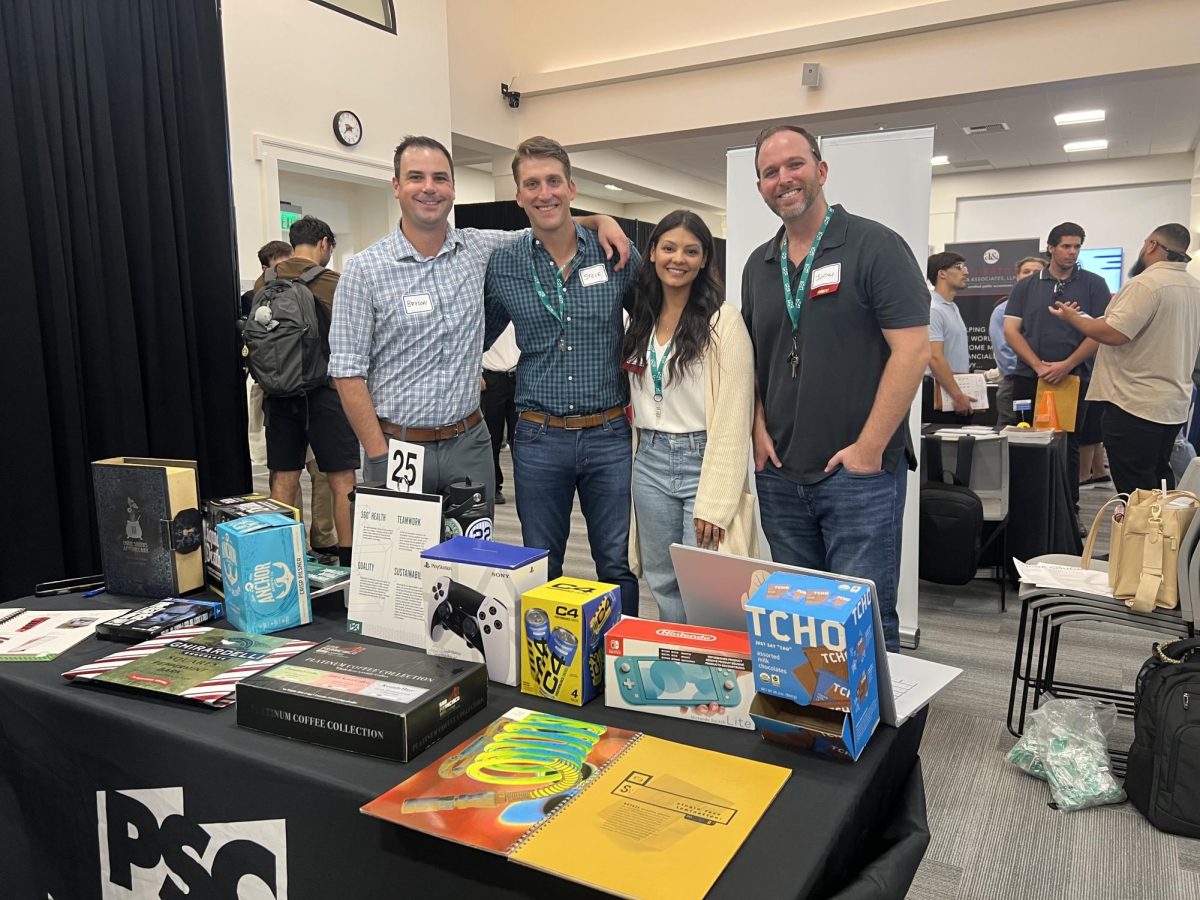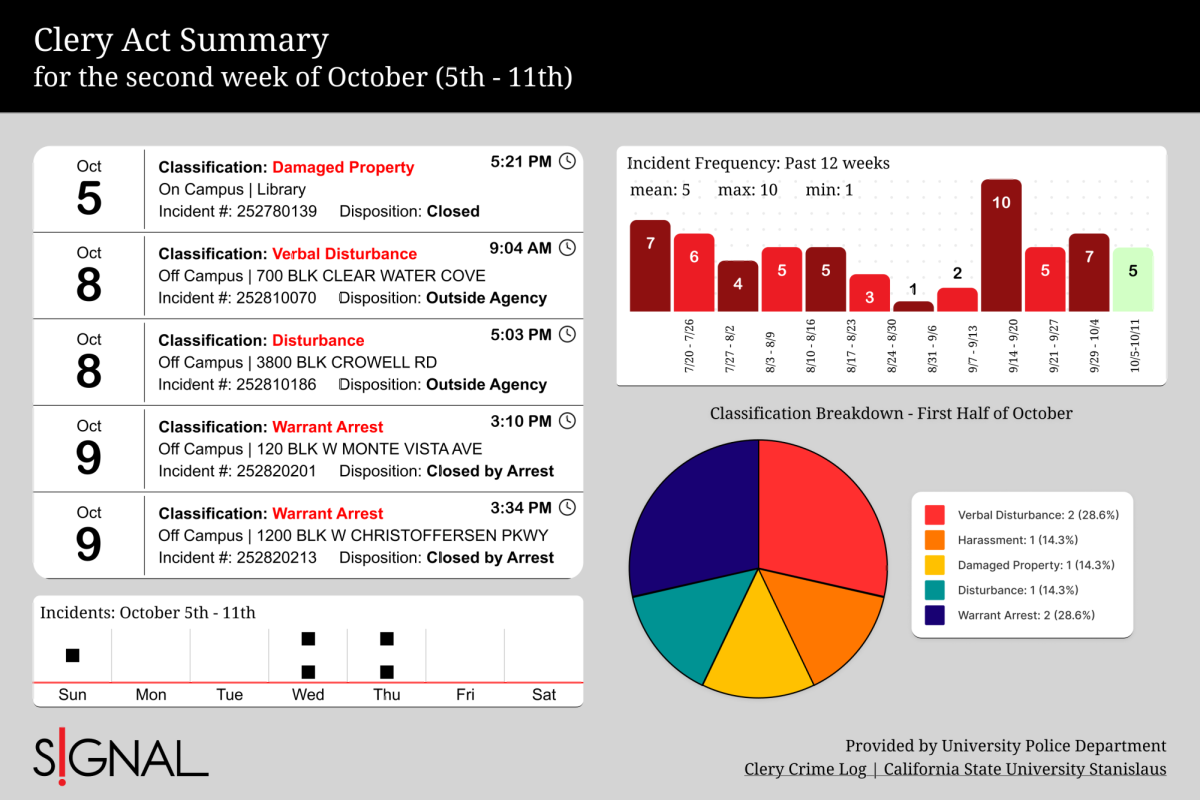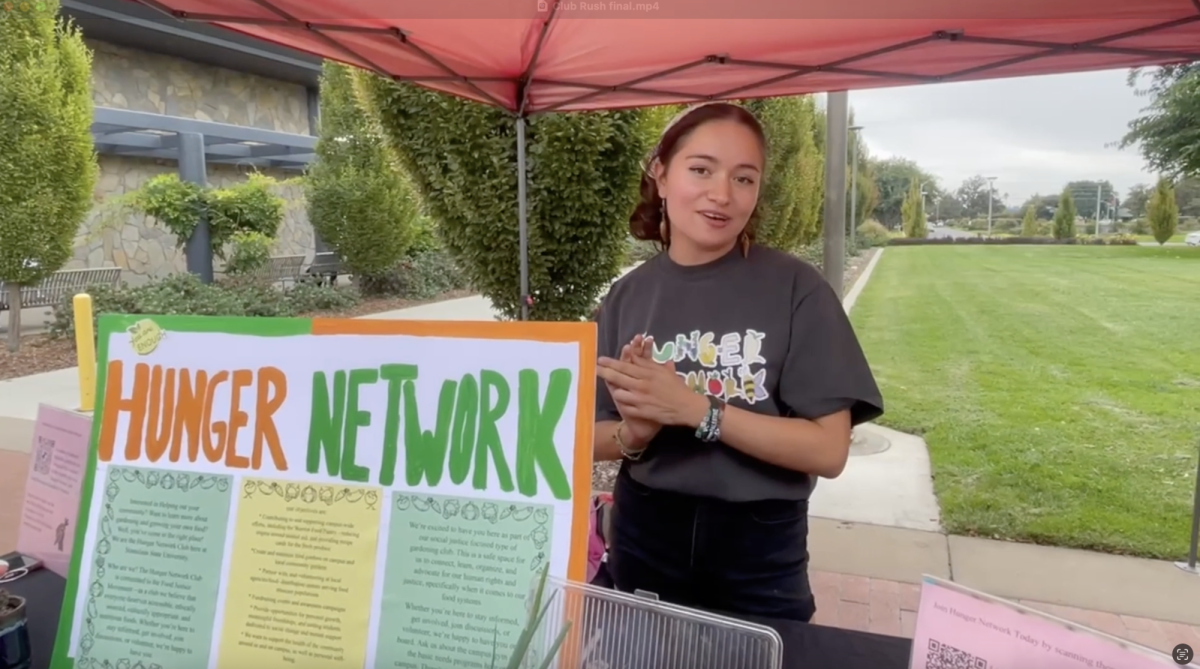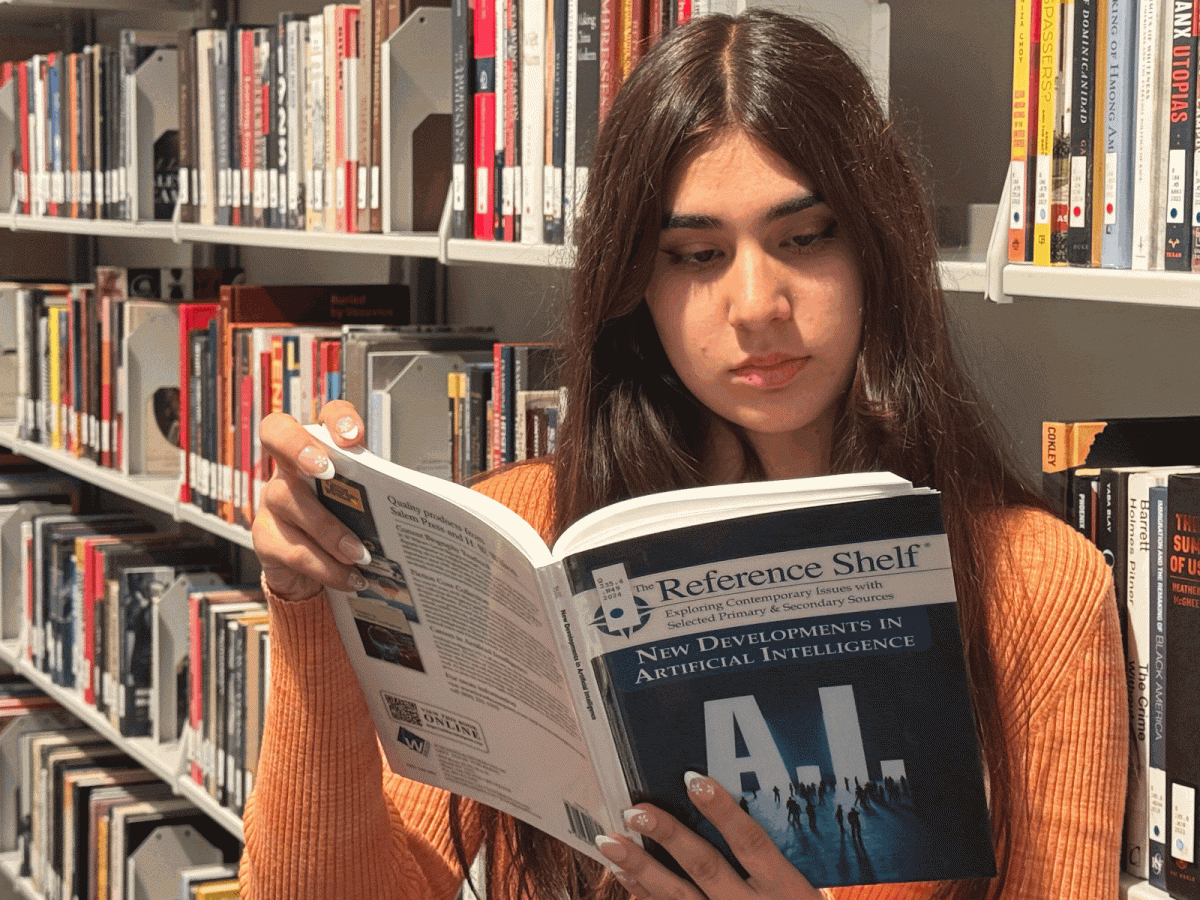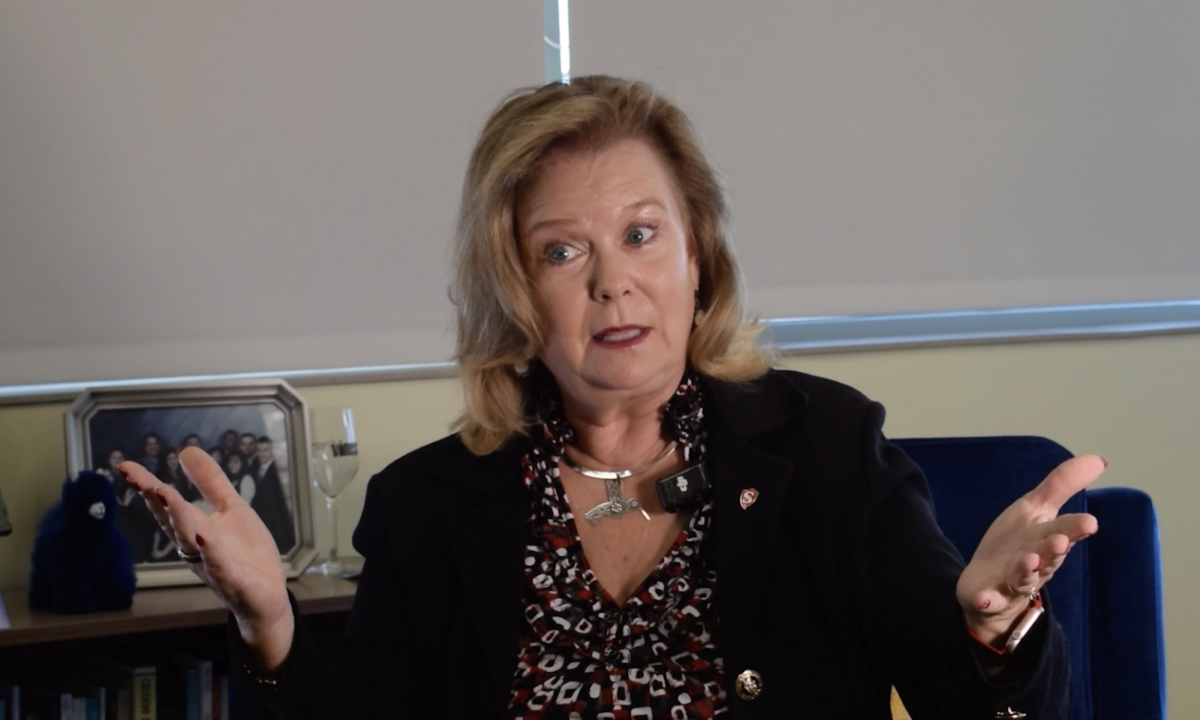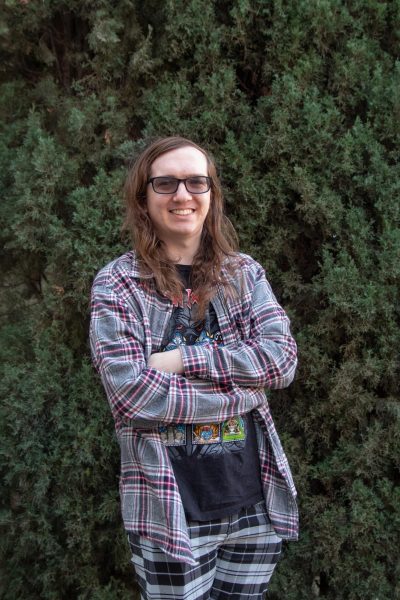CSU Stanislaus students and members of the local community showed up on the Quad yesterday to voice their support for end of the military occupation of Palestine, with many people impassioned by the recent string of violence in the region.
Safia Sanguilan (Senior, Public Health) shared how the protest affects her as a student.
“There are a lot of people who don’t know what’s going on. But hearing from others who have family themselves in Palestine helps spread that awareness,” Sanguilan said.
Standing at Sanguilan’s side, Itzel Velis (Senior, Mathematics) held up a poster showcasing her support for the Palestinian people.
“It’s really important to show our government that the people that they’re representing don’t stand for what they’re deciding. It’s important to show our representatives that we don’t agree with what’s happening. We voted them in for a reason, not so they could make decisions that are against basic human rights,” Velis said.
The protest began at 9 in the morning and finished at 2 p.m. as students rallied up in front of Stan’s State Quad.
Sahar Fayaz (Senior, Psychology) was one of the many students who took initiative in raising awareness for the cause.
“I haven’t been the same. All of last week I couldn’t come to class. Everything I did, I thought of the children of Gaza,” Fayaz said, “I thought, how can I do anything? How can one person do something to educate? That was the biggest thing.”
With the acknowledgement that the campus of Stan State is an educational institution Fayaz said, “If you are a student studying the things you want to do, your learning doesn’t stop at just your major. As a student in college, all of us made a promise and a commitment to learn, to use our education to educate other people.”
One of the educators on campus who does lecture on this topic, however, is Dr. Brandon Wolfe-Hunnicutt, a professor of history and a specialist in the modern Middle East.
Wolfe-Hunnicutt noted that there is one major misunderstanding that the public at large has about the conflict.
“One of the most common misperceptions about the conflict is that it’s a primordial conflict, or that it’s a conflict that goes back thousands of years and is rooted in rival or contentious religious claims” Hunnicutt said, “The way to understand it is that it’s a very modern conflict that grows out of very modern origins.”
He says that these modern origins arose from the international community seeking a solution to European anti-Semitism. He says that the establishment of Israel displaced Europe’s responsibility to mend its relationship with its Jewish population onto Palestinians.
Tensions are especially high after repeated attempts from Palestinians to peaceably protest Israel’s military occupation, such as the BDS Movement in 2005 and the Great March of Return in 2018, have failed.
This has led Palestine’s embittered and hopeless people to support violent political action, Wolfe-Hunnicutt says.
“The Israeli response to non-violent protest has been to respond with overwhelming force, and this is a long-standing pattern, going back to the first intifada in 1987-1988, the first time the population of Gaza tried to shake off or throw off the Israeli occupation,” he said.
Michelle, a local community member who requested to only be referred to by her first name, said she came out to show solidarity, sharing that she understands what oppression feels like being black in America.
Graduating last year in political science from the University of Maryland, she was in search of a group of like-minded people.
“I found the students of Stanislaus State,” Michelle said, “All this does is enforce my belief that the youth are our future. As a black person, the liberation of one people is the liberation of all people.”
Nataly Hernandez (Senior, English) also expressed her sorrow regarding the students on campus who are directly affected by the conflict.
“It makes me sad to see that there are students here whose families are going through that. We’re supposed to be that community that is helping them go through this,” Hernandez said.
An exchange student, Mine Mercan (Junior, Child Development), explained how she feels being a part of this community.
“I’m from Germany, but ethically speaking I’m from Turkey. I’m really happy that there is a protest. It’s smaller than expected. I was really hoping that there would be more people,” Mercan said.
Samiya Sanguilan (Freshmen, Pre-Nursing) pushed against the sentiments expressed by major news outlets.
“The Western media is very biased,” she said, “This movement can show people that there are more of us who support Palestinians. That we’re here for each other.”



